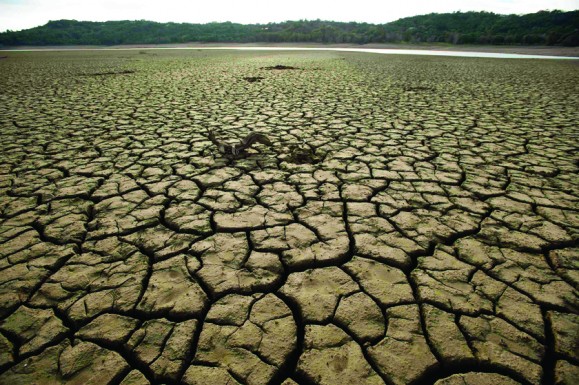I’m reminded as we go to press that in Ireland we always talk about the weather. “How about the weather now?” was an oft heard refrain of my childhood, one that brought the answer, “The weather is up.”
The weather is up! Or should we say, something is up with the weather. It’s too darn hot – with my pale Irish skin and light eye color, I’m constantly running for cover. And it’s getting hotter.
Growing up in the Irish countryside, you were always on the watch for rain (drying laundry on a line required special attention), and the winter of 2013/14 was the wettest on record in Ireland. Meanwhile, the U.S. is experiencing record heat waves, droughts, and torrential rainfall.
And wildfires. “The earth is on fire,” astronaut Eileen Collins, the first woman to pilot the space shuttle, told me when I interviewed her in 1995 about her observations from space. And so it is. As we go to press, wildfires are burning in five states.
With the weather in mind, I headed to Washington, D.C. in July to interview Gina McCarthy, the head of the Environmental Protection Agency. I was seeking reassurance that someone was on top of climate change, and I came away from my meeting convinced McCarthy has a firm commitment to reducing the U.S.’s carbon emissions, one of the main causes of global warming.
Other topics that affect our health and wellness are covered in this issue. If you can’t have good health without a healthy climate, you certainly can’t have good health without good health care. And, with this in mind, we have profiled 50 Irish and Irish-Americans who are on the cutting edge of biomedical research and health care.
Over the course of medical history, it is interesting to note that many advances in science and medicine occurred following major conflicts.
The centenary of the Great War gave me reason to ferret out my grandfather’s photo albums to see if I could better understand his experiences as a battlefield doctor, which “from a medical standpoint was a miserable bloody affair,” as one historian wrote. Indeed, it was the first conflict to see the use of deadly gases as a weapon.
World War II brought advances in the use of penicillin, while the conflicts in Afghanistan and Iraq have forced the medical world to push forward advances in prostatics and the treatment of brain trauma.
And while recent news coverage has exposed the inability of the U.S. Department of Veterans Affairs to keep up with the medical needs of all the returning soldiers, we bring you an uplifting story from Adam Farley who traveled to the Irish enclave of Rockaway, Long Island, where for a decade now, every July wounded warriors from Walter Reed Medical Center are treated to a weekend of family fun and water sports. Meanwhile, Sarah Busher profiles two doctors, a father and daughter, about their service in the military from the Gulf War to the present day.
In this issue, we also have an enlightening personal-essay section on living with chronic diseases, with contributions from Mary Beth Keane, Darina Molloy, and Sharon Ní Chonchúir. Also, a story on RISE, an organization founded by Irish singer Frances Black to help families dealing with addictions. We learn that Frances has a special healing place – Ratlin Island – the very remoteness of which offers spiritual sustenance. There’s an abundance of these places in Ireland. As Rosari Kingston, writing in this issue, reminds us, our physical well-being can be greatly enhanced by enriching our spiritual health through visiting nature’s sacred places. Yet another reason to protect our environment from the damaging effects of pollution. To quote Gina McCarthy, if we act now, “we can stop it from getting worse for our kids, and that’s really our moral obligation.”
Mortas Cine.


Ireland is a beautiful and impressive place to admire nature but not sure where you are getting your information about climate change or what use to be called global warming. It seems that there has been no increase in temperature or global warming since 1996. The predicted timing of the melting of the north pole has long since past and the reality is the polar ice cap is growing in both area and thickness. My guess is that except for the deserts of the world each day will bring a change in the climate. Hopefully this winter will be easier on those in the Wicklow mountains and the snow won’t cause as many problems as this past winter.
Cheers,
Brian.